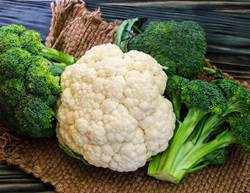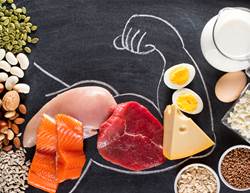Protein has always played a starring role in how our bodies function, and adding more of it to your day may help support everything from strength to satiety. Whether you’re looking to build muscle, age strong or simply eat more mindfully, protein-rich ingredients can help you meet your nutrition goals.
“Protein plays two critical roles in human biology. One is for structure—it’s the key nutritional component of muscles, skin, bones and tissues,” explains accredited dietitian Jaclyn London. “The other is for function, aiding in biochemical processes such as hormone regulation.”
You can estimate your daily protein needs by converting your weight from pounds to kilograms (divide by 2.2) and multiplying that number by 0.8. But it’s always a good idea to check with your GP or an accredited practising dietitian. “Emerging research suggests that an intake higher than the current recommendation may benefit women over 40 and help improve muscle preservation, reduce risk of frailty and optimise physical function,” says London.
High-protein ingredients
Whether you’re trying to build strength, support healthy ageing or simply stay fuller for longer, getting enough protein each day can make a real difference. And the good news? You don’t need to load up on steak at every meal to hit your target. A wide range of everyday foods—many of them plant-based—can help you reach your protein goals in a delicious and balanced way.
Here are some easy-to-enjoy ingredients that deliver more protein than you might expect.
Pistachios
Tiny but mighty, pistachios offer about 6 g of protein per 30 g serve. They’re also a great source of fibre and healthy fats, making them a perfect mid-afternoon snack to help keep hunger at bay. Sprinkle them over Greek yoghurt, blend them into smoothies or mix into homemade granola for extra crunch and staying power. Plus, their natural green hue adds a pop of colour to sweet and savoury dishes alike.
Chicken
Lean, versatile and easy to cook, chicken is a staple protein source for a reason. While chicken breast contains the most protein per gram, thighs still offer plenty of muscle-supporting goodness, along with minerals like zinc and selenium for immune health. Add grilled chicken to your lunch salad, toss into a stir-fry or roast a batch to use across your week’s meals. For extra flavour and moisture, try skin-on thigh fillets with a spice rub or marinade.
Peas
Don’t underestimate these humble freezer staples. Green peas pack in about 8 g of protein per cup, along with a generous hit of fibre to support digestion and keep you full. They’re also used in many plant-based protein products like shakes and snack bars, thanks to their surprisingly high protein content. Add peas to pasta, blitz them into a dip or mash them on toast with a squeeze of lemon for a simple, nutrient-packed topping.
Mozzerella
Creamy and mild, mozzarella is a protein-rich cheese that brings more to the table than just pizza vibes. A half cup of part-skim mozzarella contains around 10–12 g of protein, making it one of the higher-protein cheese options. Use it in omelettes, throw into salads or melt it over roasted veg for an indulgent but balanced twist. For a lighter option, go for bocconcini or part-skim mozzarella balls.
Lentils
With a whopping 18 g of protein per cooked cup, lentils are a plant-powered nutritional powerhouse. They’re also full of iron, fibre and slow-burning carbs, making them a go-to for vegetarians and meat eaters alike. Add them to soups, curries, salads or even veggie patties for a budget-friendly, filling meal. Cook a batch at the start of the week and you’ll have endless lunch options on standby.
Oats
A breakfast hero, oats deliver about 6 g of protein per cooked cup. They’re rich in beta-glucan fibre for heart health and may help regulate mood, thanks to nutrients involved in serotonin production. To give your morning oats a protein lift, try adding chia seeds, Greek yoghurt or leftover cooked quinoa (which adds another 8 g per cup). Oats also work well in smoothies, muffins or DIY protein bites.
Tempeh
Firm, nutty and versatile, tempeh is a fermented soy product that delivers 17–19 g of protein per 100 g. It’s also rich in gut-friendly probiotics and offers a more textured bite compared to tofu. Slice it into strips and pan-fry for a crisp edge, cube it into stir-fries or marinate it for the air fryer. Its hearty, savoury flavour makes it a satisfying swap for meat—even for non-vegetarians.










